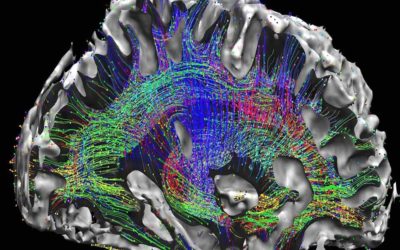See Our Recent Mental Health Articles
Get the most out of your TMS!
Dr. Lindsay Oberman discusses this in depth. The original link is as follows: How Mental and Physiological State Affects the Safety and Efficacy of TMS In brief, as a summary this is some of what she has discussed (with interspersed commentary/input from Dr. Yin)–...
Oliver’s Story
This is the story of Oliver. When in high school, he had a number of aspirations, he did alright at the time. He’d done research in neuroscience at the Rockefeller University under Dr. RIchard Hunter, competed in science competitions at places like the New York City...
Take care of your brain
Exercise, Stress, and the Brain Dr. Paul Thompson (PhD) discusses how our environment affects our brains and shows some rather interesting neuroimaging findings. Exercise affects our brain in a few different ways. 1)Blood flow. If your heart is working hard, your...
I Got My Life Back
“For me, depression was a roller coaster, it went up and down and I never knew from day to day what was going to happen. I’ve been a guy that fixes things all the way through my career, through school, through growing up. The hardest part with depression and anxiety...
Can Magnets Heal the Heart?
Barbara Alvarez discusses at the link below how processing a break up can go wrong and what can be explored if depression hits. https://www.huffpost.com/entry/can-magnets-heal-a-broken_n_9420198 Research shows that a break up can be a traumatic experience. People...
From Depression to Remission
Anders experienced remission from depression after undergoing a course of transcranial magnetic stimulation (TMS). Although the devised used for this particular patient was a MagVita, Brainsway deep TMS has an even higher remission rate. In brief, his story is yet...
See More of Our Blog Articles
- This is Your Brain on Magnets
- What is Ketamine Therapy?
- Wellbutrin and Zoloft Together -When the Meds Aren’t Working
- How to Heal After Being Cheated On
- How Depression Affects Sleep
- Attachment Styles: Moving from Anxious to Secure
- A Glimpse into What Manic Depression Feels Like: Symptoms of this Misunderstood Disorder
- How Does TMS Work?
- How To Date Yourself
- How To Come to Terms With the End of a Friendship
- The Loneliness Epidemic
- Nail Biting
- Optimize the Mental Health Benefits of Having a Pet!
- Therapy and Psychiatric Care in Parenting
- Emotional Contagion
- Psychiatrists and Therapists: What are the first things you notice about clients?
- Signs It Is Going Well or Not With Your Therapist
- History of TMS for Depression
- Neuroscience of Depression and Treatment
- Orange Peel Theory And Healthy Relationships
- Deep TMS Success Stories
- Why is the Dorsolatereral Prefrontal Cortex (DLPFC) the Favorite Region to Stimulate?
- How Do Neurotransmitters Affect Depression?
- Existential Crisis
- Jealousy
- Under the Depression Helmet
- Interventional Psychiatry for Anxiety at New Frontiers Psychiatry in Milwaukee
- When to Take Seasonal Affective Disorder Seriously: A Look at TMS for SAD
- How Magnets are Treating Depression at a High Success Rate
- “I have so much hope”: How Deep Transcranial Magnetic Stimulation Changed One Woman’s Life
- Three Reasons it’s Worth it to Consider TMS as an Alternative Treatment to Depression
- Change Your Brain
- Deep TMS Helped Andrew
- FAQs About Transcranial Magnetic Stimulation
- The Low Down on Esketamine
- TMS: Know Your Options!
- Simple Ways to Help Your Mental Health
- Being Proactive During TMS Treatment
- Misconceptions about Depression Treatment
- Losing a Loved One
- Depression and Fatigue
- Is TMS Right for You?
- Do You Know All Your Options?
- Wiring of the Brain
- Get the Most Out of Your TMS!
- Oliver’s Story
- Take Care of Your Brain
- Can Magnets Heal the Heart?
- From Depression to Remission
- Treatment for Depression and Addiction
- TMS in the Veteran Population!





